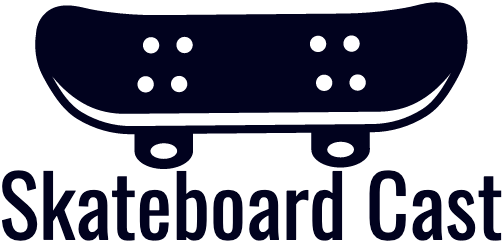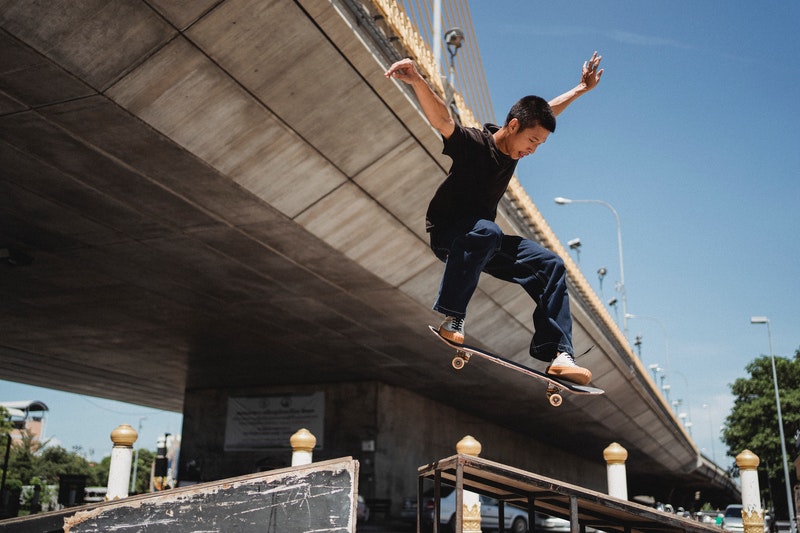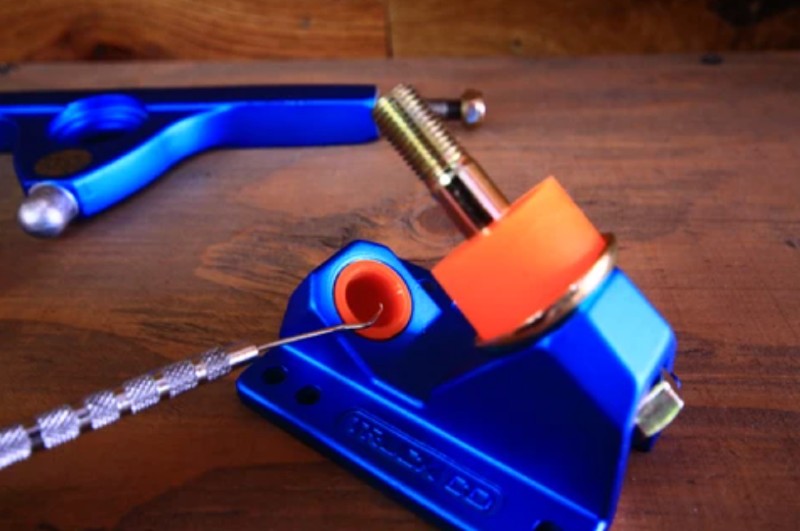Introduction
As you are getting older, skateboarders might get many questions like, what age should you stop skateboarding for good. In general, there is no observable age limit for this sport.
Riders can skate whenever they want to, as long as they still have the love for this leisure and their physical condition allow them to do so. However, once you are in your middle-aged range, there are several things you should be careful about while being on the board.
Some factors might affect your decision on whether you should stop skateboarding at your age or not. These aspects can happen sooner or later depending on each individual. This means there is no exact age that you should stop playing this sport.
However, once getting older, there are things you should carefully consider before skateboarding. We will discuss all of those mentioned above in this article. Now, let’s dive in!
Things To Consider When You Skate At An Older Age
Physical Conditions
When you are in your thirties or forties, you start realizing that your body is not invincible. You heal slower and have less energy. Skaters feel their mortality clearer as days pass by.
Health problems associated with aging start appearing as well. This includes hearing loss, back and neck pain, osteoarthritis, diabetes, or insomnia.
The great news is that there is no need to worry about it as long as one can still pick up their skateboards. If you cannot walk, then you might have a harder time catching up. Other than that, there will be a skateboarding style out there for you if you are healthy enough to stand on the board.
Therefore, don’t let age discourage you from playing this wonderful sport. However, there are several things about your physical conditions you need to keep in mind if you don’t want to quit skating at an older age:
Be honest with your body
At the age of 30s or 40s, bone problems appear. Your joint and cartilage might not be as healthy as in your 20s. Hence, make sure you can handle skateboarding. Don’t rush doing hard tricks and push yourself beyond limits!
Be relax
Don’t worry if it takes a longer time for you to learn tricks. Keep in mind that if you try too hard and get hurt, you might have to retire from skateboarding much sooner than you expected.
Choose the right skateboard
Older skaters usually are interested in longboarding, a significantly long and large board compared to the average size. It’s a safer version of skateboards as people do sidewalk surfing rather than intense skate tricks.
Equip yourself
The older you get, the slower you heal. If you do skateboarding, you will get hurt. That is a part of the deal. Therefore, well-equipped yourself! Always wear a helmet and pads to protect your elbows and wrists.
Go to skateboarding shops for help
Older skaters usually run local skateboard shops. These are excellent resources for assistance and advice. It’s a good idea to tell them you are skating at an older age and looking for some safety tips.
Physical Condition
Economical Conditions
When kids skate and get hurt, they easily take days off from school to heal themselves and catch up later. Nonetheless, adults cannot do that! We have work and other responsibilities to fulfill!
Let’s measure the age you should stop skateboarding by analyzing the downside risks. In this case, I will use falling and breaking a bone as an example. You should be able to answer these questions. Any negative answer means you should consider stopping skateboarding no matter what age you are.
What happens to you if you fall off? Will you lose your job if you break a bone and won’t be able to work in the next couple of weeks? Does your income continue during your recovery? Your boss allows pay leave in a situation like this? Does insurance pay for injury while skateboarding at your age?
Think about these questions carefully, and you will know at what age you should stop skateboarding!
Economical Condition
Mental Conditions
Skateboarding is not leisure solely for the youth. Nevertheless, youngsters are usually the ones who are pictured to skate, not middle-aged or elders.
Moreover, to protect yourself from serious injuries, you should wear full protective gear, which youth don’t usually do. If you are in your thirties or above, you should not do intense tricks as your body heal much slower, and you have responsibilities to fulfill on your shoulder.
Teenagers skate in the give-it-my-all attitude. They are not afraid of dangers or wounds to try new, cool tricks. However, adults should approach this sport from a cautious perspective. As a result, the older people who skate will receive a lot of doubtful looks and staring.
Make sure you prepare yourself for this. Don’t feel embarrassed because you are not rocking skateboarding yet. Keep up the good work!
Mental Condition
Tips To Have A Safer Skating Experience
Even though there is no specific answer to what age should you stop skateboarding, riders should be careful and considerate when they grow older, especially above the age of 30. Below are several easy tips skaters can do to have a safe skateboarding experience.
Purchase Wider Board With Decent Trucks
Make sure to buy a board between 8.25 to 8.5 inches wide. If you want additional stability, go for size-independent or venture trucks. Bigger boards and trucks can help shorten your time finding balance on the board.
If you don’t know what skateboard you need, consider buying a longboard. This is a calm and gentle version of skateboarding. Its huge and stable board allows you to do all basic tricks while keeping you safe and sound.
Buy Wider Board With Decent Trucks
Have Protective Gear
It would not be a wise thing to do if you ignore protective gear, especially when you are above 30 years old. As you are getting older, it’s harder to recover, and falling will have more impacts.
Not only should you wear a helmet, wrist guards, padded shorts, knee pads, and elbow pads, you should seriously consider butt pads. When your body starts aging, it is easy to hurt your spine after falling on your butts several times.
When you click on this article to read, I assume that you are not in your teenage or early twenties years anymore. As you start thinking about giving up skateboarding because of your age, you might be in your 30s or above.
At this age, there is no reason to save money on skateboarding protective gear as you are working full-time and be financially stable. Therefore, get yourself the best pads and helmets, especially shoes. Quality shoes with proper cushioning can avoid heels and ankle injuries.
Check Up Your Board Regularly
The more you skate, the more occasionally you should inspect your board. Make sure all the components properly attach and tighten. Avoid skating in bad weather and wet conditions.
Remember to check your trucks from time to time as this part gets loosen easily. Too tight or too loose trucks all affect your performance on the board, so be extremely careful when adjusting your trucks.
Dirt and dust will eventually find their way into your bearings, so it’s necessary to clean them once in a while. Depending on how frequently you skate, you should clean them at least every three months. Skaters should buy open bearings for easy cleaning – soak them in alcohol or nail remover.
Similar to trucks and bearings, bushings wear down in time. The signs of dry bushings include cracks and crumbled or squished bushings. Grip tape also rips off easily while skateboarding as well.
Replacing these components is a piece of cake, which you can do regularly at home. Stop by any local skateboarding shop, and you will have all you need to perform a makeover for your skateboard.
Avoid extreme weather to lengthen the life of your skateboard. Weather affects it far worse than what you can think of. The deck absorbs water which will result in a soggy, waterlogged surface, ruining your deck completely.
Bearings also are not fond of water. Once being in contact with water, it will wash away the lubricant that keeps bearings spinning. Rust will form, and bearings will start to make an annoying noise. In this case, add a little dirt in and apply some lubricant.
Being able to check up on each component of your skateboard regularly and fix what fallen apart will keep you safe from any injuries.
Check Up Your Board Regularly
Warm Up Your Muscles
If you are short on time, you may be tempted to skip the warmup and jump right onto your board. However, remember that you are not a teenage kid anymore. Your bone and joint now lack the flexibility to move quickly without warming up.
Therefore, it’s important to take a few minutes to convince your muscles to go into exercise mode. Or else, you will notice muscle ache after skateboarding.
The warmup does not need to be fancy, sport-specific. Skaters can exercise in whatever ways they like as long as the warmup has a broad range of movements.
Typical examples include squats, pushups, planks, jumps, or go for a short walk in your neighborhood. These easy warmups will allow you to come back on your board the next day without hurting and cramping.
Warm Up Your Muscles
Respect The Culture
In skateboarding, there are several unspoke rules. Notice these things carefully! Which sector you can skate, which space you should not enter, how to carry your board around, or how to behave in skate parks.
If you are confused and lost, don’t hesitate to ask the younger fellow skaters for guidance as they are always supportive. Keep in mind that you should not ride anywhere you want to. Make sure to observe the area to prevent collisions, and don’t cut turns, ever!
Respect The Culture
Try Transition Skateboarding
Transition skateboarding is also known as ‘pool riding’ – utilizing the emptied backyards swimming pools to perform skate tricks. Riders move from the horizontal side (on the ground) to the vertical (on a ramp or other inclined surface).
Older skateboarders are fond of this type of surface because it is easier to do tricks than on the streets or pavements. It is safe here as well!
You can start by practicing kick turns, riding up and down quarter pipes, or doing fakies (skate backward). Once you are confident with the pipes, you should move on to the mini ramps, which are great fun and safe.
Try Transitioning Skateboarding
Choose Skateboards Wisely
At this age, your choice of boards should focus on the safety perspective, not the fancy, showing-off purpose anymore. My two primary recommendations for you are cruiser and longboard.
Cruiser’s design is for gently moving down the streets or city environments. Its length is around 25” to 37”, and its wheel size is between 55mm to 65mm. It is not suitable for racing fast or downhill. This type of board is light, so you can carry it around without too much effort.
Cruiser is a great choice for older skaters. With its length and height, it allows you to do quick acceleration while providing balance and comfort.
As you might already guess from its name, longboard has a significant length compared to other types. The deck length can range from 70” to 80” with huge and stable trucks.
Longboards offer the smoothest ride. Rocks and rough roads are not a problem for this one board, unlike the classic skateboards. Due to its size, longboards might not be as responsive. Acceleration is slower, and it is harder to make sharp turns.
These are the exact reasons why longboard should be the go-to option for older skaters. They are extremely safe!
| See more: |
FAQs For What Age Should You Stop Skateboarding For Good?
Is 25 too old for skateboarding?
It’s never too old to start skateboarding! Many people continue to enjoy skateboarding well into their 30s, 40s, and beyond.
Can you be too old to skateboard?
No, there is no age limit for skateboarding. Anyone can start skateboarding at any age and enjoy the sport.
What age is too late to skateboard?
There is no specific age at which you should stop skateboarding for good. It ultimately depends on your personal physical condition and preferences.
Is 21 too old to skateboard?
Not at all! 21 is still a great age to start skateboarding and enjoy all the fun and benefits it offers.
Is 20 too old to skate?
Absolutely not! 20 is a perfect age to start skateboarding. It’s never too late to pick up a skateboard and have some fun.
Is 22 too late to start skating?
No, it’s not too late! At 22, you can still begin skating and learn new tricks. Skateboarding is a sport that welcomes beginners of all ages.
Is 19 too late to start figure skating?
It’s never too late to start figure skating! Whether you’re 19 or older, you can still learn and enjoy the beautiful sport of figure skating.
Is 18 late to start skating?
Not at all! Starting skating at 18 is a great idea. You can learn new skills, have fun, and be part of the skateboarding community.
Is 14 years old too late to start figure skating?
Absolutely not! 14 years old is a great age to start figure skating. Many successful figure skaters began their journey around this age.
Conclusion
In general, there is no clear answer as to what age should you stop skateboarding. If you still enjoy the feeling of winds roaming through your ears while being on the board, I see no point in stop skateboarding.
Riders should skate as long as their love and passion for this sport still burning inside them. However, as you grow older, there are many more things to consider, such as your physical, economical, and mental conditions.
Make sure to acknowledge the risks coming along with skateboarding at an older age. And that’s all that you should think of! Age is not a decisive factor in whether you should stop playing this or not. Let go of all your concerns and enjoy skateboarding while you can!



